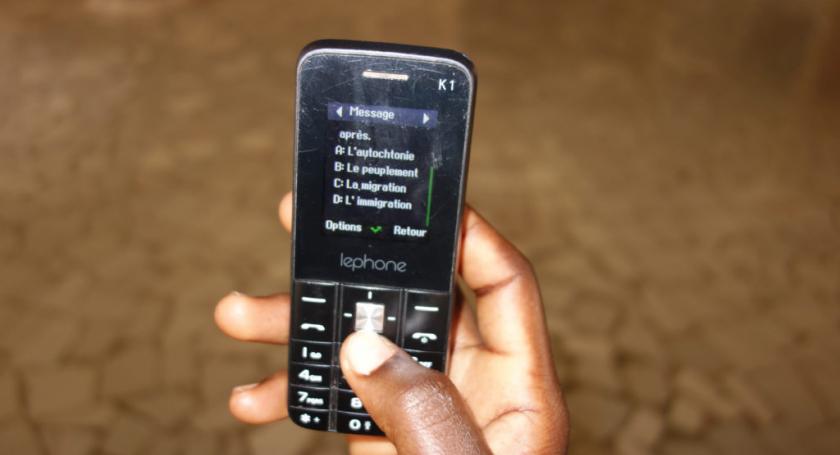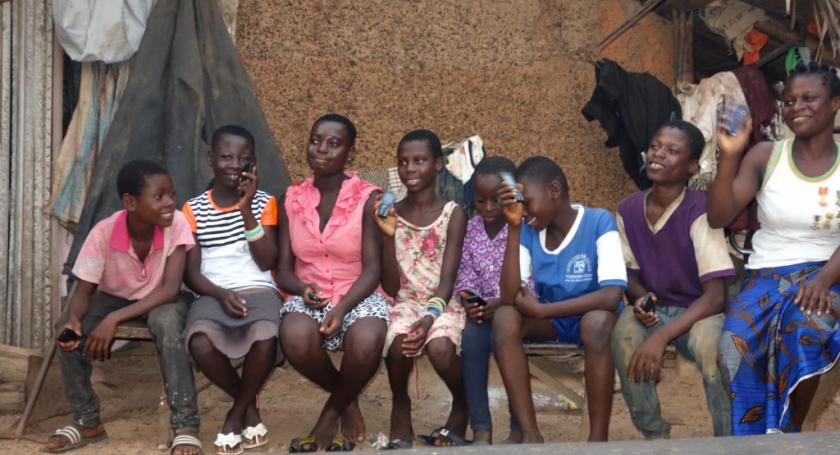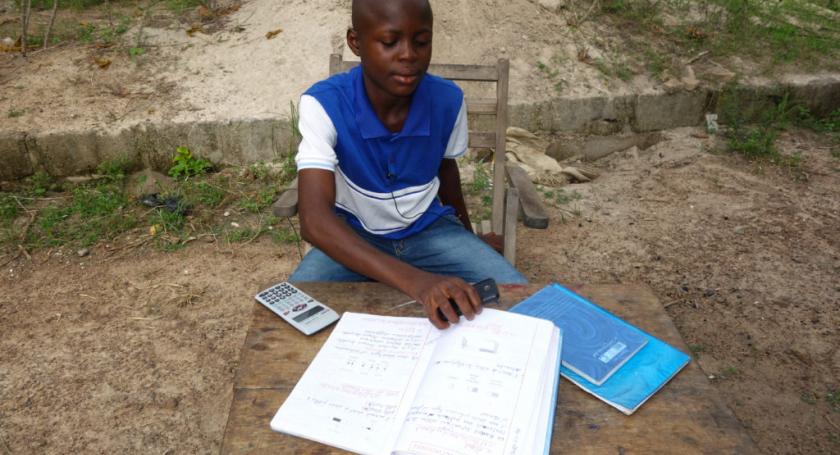Eneza Education, Nestlé and ICI have launched a project to support school kids in rural cocoa-growing communities. 500 children from more than 20 communities who are potentially exposed to child labour will have free access to iEduk, a service recently launched by Eneza Education.
The mobile phone educational support programme will allow these 500 students to review their lessons free of charge by SMS using course summaries and educational quizzes, thanks to iEduk, an Eneza Education service, on mobile phones provided by Nestlé.
In 2013, an estimated 2 million children in Cocoa communities in Ghana and Côte d’Ivoire were involved in child labour. A dramatic situation that several actors have decided to remedy, in order to offer better prospects to the populations and to build a sustainable and mutually supportive value chain for cocoa farming.
The mobile phone educational support programme will allow these 500 students to review their lessons free of charge by SMS using course summaries and educational quizzes, thanks to iEduk, an Eneza Education service, on mobile phones provided by Nestlé.
In 2013, an estimated 2 million children in Cocoa communities in Ghana and Côte d’Ivoire were involved in child labour. A dramatic situation that several actors have decided to remedy, to offer better prospects to the populations and to build a sustainable and mutually supportive value chain for cocoa farming.
Nestlé has been a pioneer in this field through its Nestlé Cocoa Plan programme, in which child labour remediation is a major focus.
A partnership with the International Cocoa Initiative (ICI) has therefore been initiated to implement a child labour remediation programme, in which improving access to education is at the heart of the issues; a child in a learning situation is less likely to be exposed to child labour.
Several actions have been taken in this direction, including building schools, setting up bridging classes for pupils who have dropped out of school, facilitating the distribution of birth certificates that provide access to school for thousands of children or distributing school kits.
In addition to these “traditional” actions, Nestlé and ICI have decided to adopt an innovative approach to educational support by partnering with Eneza Education, which has just launched iEduk, the first interactive SMS learning platform in Côte d’Ivoire.
iEduk is a virtual educational tutor based on a fun and innovative educational approach whose objective is to overcome the limits encountered by learners in their learning process, in particular, the difficulty of access to school materials and individualised educational support. iEduk allows students to revise their classes using mini-lessons and educational quizzes (QCM) accessible by SMS and validated by the Ministry of National Education, Technical Education and Professional Training.
As part of this programme, Nestlé sponsored access to iEduk for the 500 beneficiary children concerned, selected on the basis of precise criteria in consultation with the communities. Nestlé also financed the purchase of telephones, which were made available to all parents to ensure that children had free access to iEduk.
This major project is in addition to the other activities we are carrying out, such as building and renovating schools, setting up bridge classes for early school leavers, facilitating the provision of birth certificates to facilitate access to school and distributing school kits — all coordinated by ICI.
Kambou Yéfè Harris Angelus, a 4th-grade student at the Lycée moderne 2 in Adzopé, on the new learning tool: “I review my lessons with the telephone because the information received through this tool is complementary to the courses received in class”.
While on tour in Côte d’Ivoire, Darrell High, Global Head of Nestlé’s Cocoa Plan, said: “I wish this great project a long life. A child in a learning situation is less likely to be exposed to child labour. This partnership between Nestlé and Eneza Education is a perfect illustration of the Nestlé Group’s raison d’être: to improve the quality of life and contribute to a healthier future. This project also has one thing in common with another significant action carried out with UNESCO for the literacy of women traders (the MAGGI grannies) also using mobile phones.”
For her part, Carole Attoungbré, Director Côte d’Ivoire of Eneza Education, pointed out that the schooling of children in rural areas is a real challenge. Nevertheless, keeping them in school is an even more significant challenge. With parents who are often illiterate and who do not have the means to support them in their learning process, difficulties in accessing school materials and difficult logistical conditions (the school is sometimes very far from the village), these children are often confronted with failure and dropping out of school. “These children who start working very early often find themselves trapped in the vicious circle of poverty. The objective of this type of programme is to enable children, by giving them access to an educational tutor, to improve their performance in class so that they can go as far as possible in their curriculum,” she said.
With operations in Kenya and Ghana, Eneza Education has already enabled nearly 5 million users to review via mobile phones. A product demonstration is available on the Facebook page: @iedukci.
NB: For further information, please contact Eneza Education Côte d’Ivoire at info@enezaeducation.com.



